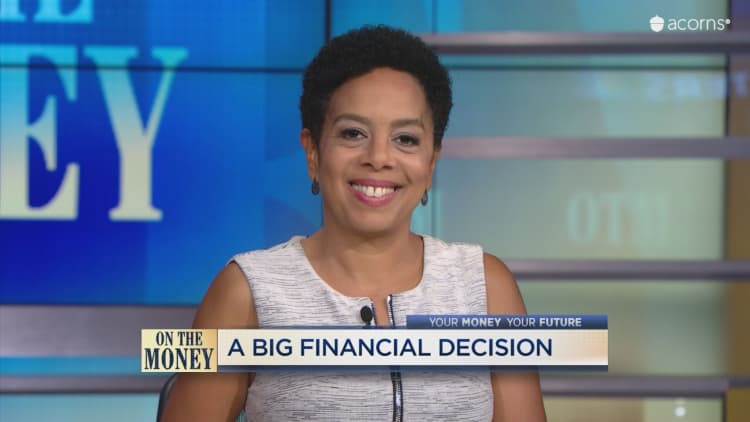For Medicare's 61 million or so beneficiaries, Saturday marks the day that their coverage for 2020 is locked in — sort of.
The fall enrollment period, which opened Oct. 15 and runs through Dec. 7, is when you can make certain changes to your Medicare coverage, effective Jan. 1.
That includes going from original Medicare (Part A hospital coverage and Part B outpatient care) to an Advantage Plan, or vice versa. You also can switch from one Advantage Plan to another or from a standalone Part D prescription drug plan to a different one. If you take no action, you'll automatically remain enrolled in your 2019 plan.
However, you might be able to change your coverage after the calendar flips, depending on your situation. And this year, due to some reported snags with the revamped Medicare.gov Plan Finder, there's a chance you'll discover something about your coverage that isn't suitable if you used that online tool.
"That's definitely something we're worried about," said Julie Carter, senior federal policy associate at the Medicare Rights Center, a nonprofit group. "There have been issues that have cropped up and we can't be sure how often, how many people they've affected or how many people made decisions based on it."
The Centers for Medicare and Medicaid Services, the federal agency that oversees the programs, has addressed all reported problems, which, Carter said, related to drug pricing. However, the concern is that users didn't identify an issue at the time but will realize it later when, say, their prescription costs more than they thought it would.

For Advantage Plans, there already is another enrollment period in place — Jan. 1 through March 31 — when you can make one switch, either to another Advantage Plan or to original Medicare and a stand-alone Part D prescription plan.
However, if you discover something wrong with your coverage that can't be changed during that window, there may be another route. If it turns out that your choice was based on bad information, you might be granted a special enrollment period (typically two months) to change your coverage.
"As is the case every year, our call center representatives and staff caseworkers can help beneficiaries throughout the year if they believe they made the wrong plan choice because of inaccurate or misleading information," according to a recent blog post by the Centers for Medicare and Medicaid Services.
More from Your Money, Your Future:
How to keep a tax bomb from blowing up your holiday bonus
What Americans really want for holidays is to pay down debt
Here are the hidden benefits of a Roth IRA conversion
"This process isn't new, but this year we're doubling down on ensuring that it's a simple and painless experience for beneficiaries," the post says, providing 1-800-MEDICARE for those who might need help.
Medicare agents say it's too soon to know if concerns about the Plan Finder will pan out.
"It will be interesting to see," said Elizabeth Gavino, founder of Lewin & Gavino in New York and an independent broker and general agent for Medicare plans.
She's covering her bases, just in case problems arise.
"This year, I made sure I printed and saved Plan Finder reports for each and every client," Gavino said. "So if anything turns out wrong, I can show what I used."
Meanwhile, remember that you can still make changes for 2020 through Dec. 7.
Generally speaking, experts recommend that all Medicare beneficiaries take time to review their coverage and check for whether there's another option that could be more suitable and cost less.
Even if you're happy with your 2019 coverage, changes made from year to year could affect your premium, copays and deductibles, along with in-network providers and pharmacies. And depending on your location, new coverage options could be available that weren't in the past.
This year, I made sure I printed and saved Plan Finder reports for each and every client.Elizabeth GavinoFounder of Lewin & Gavino
Despite that, most Medicare beneficiaries don't switch plans during fall open enrollment, according to research from the Kaiser Family Foundation.
Also, be aware that if you're dual-enrolled in both Medicare and Medicaid, the rules applying to when you can change plans are different. And, if you are enrolling in Medicare for the first time, your window for signing up is separate from this current fall enrollment period. Medicare supplemental insurance policies — also known as Medigap — also operate under separate rules.
Finally, there are certain other instances — i.e., moving to a new area with different coverage options — when the program grants a special enrollment period to Medicare beneficiaries so they can make changes.






